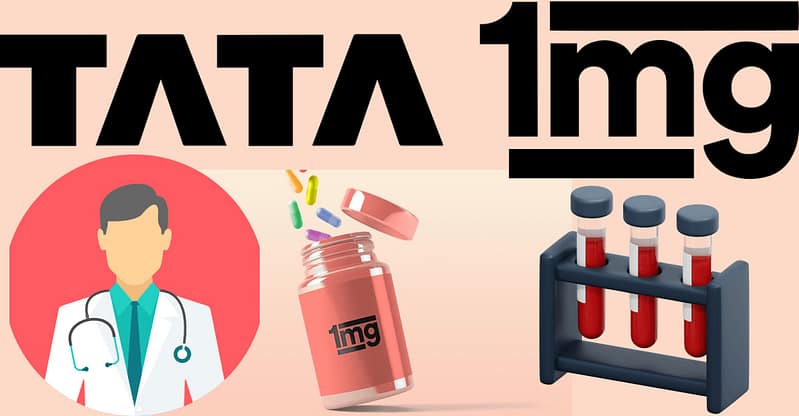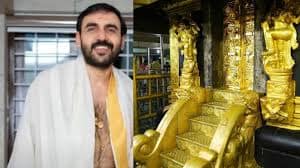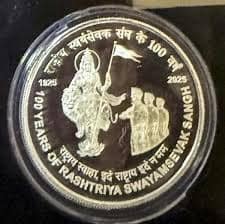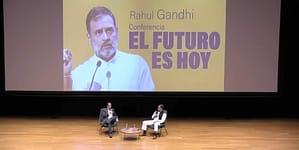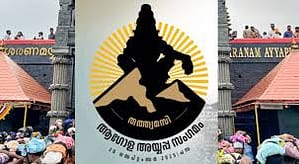Rape charge cannot stem from failed consensual relationship: Kerala HC. The Kerala High Court has observed that merely because a consensual relationship turns sour at a later stage, it cannot form the basis of a rape allegation. The court further stated that there cannot be a case of deceitfully obtaining consent under a false promise of marriage if the complainant is still in a subsisting marriage. Justice Bechu Kurian Thomas observed while granting anticipatory bail to a 27-year-old man from Malappuram, who was accused in a rape case registered by the Thamarassery police. According to the prosecution, the accused had raped a third-year student of a private medical college between November 3, and November 4, 2024 at a hotel near Thamarassery. The counsel for the petitioner argued that the allegations were false and that a consensual relationship had been converted into a rape case without any basis, merely because the relationship later deteriorated. The court noted that the complainant’s statement revealed she is a third-year student at a private medical college and had been married in 2023, a marriage that is still subsisting, though the couple had decided to part ways. The complainant stated that, in the meantime, she became acquainted with the petitioner through Instagram, and their relationship continued through a platform called Snapchat. Later, according to the complainant herself, under the pretext of returning home for study leave, she took a train to Kozhikode, where the petitioner picked her up. They then travelled together to Wayanad. En route, they took a room at a hotel near Thamarassery and spent a night there. The next day, they travelled to Tirur and stayed in another hotel, after which she returned to Thiruvananthapuram. The court observed that the statement indicates she went of her own volition to meet the petitioner and also willingly stayed with him in two different hotels. “There is nothing prima facie indicative of a rape except for a bald statement that the petitioner had indulged in a forceful sexual relationship with her,” said the court. “When a married lady, on her own volition, travelled from Thiruvananthapuram to Kozhikode and willingly stayed with the petitioner in different lodges, that too for two nights, it cannot be assumed that the physical relationship between them was without her consent.” The court also noted that rape is a heinous crime and such an allegation, if levelled, can mar a young person’s life forever. “The stigma of such an accusation will follow him even if he is later acquitted,” the court stated. “Courts cannot be unmindful of the changing social milieu, while considering the applications for bail from youngsters who are accused of the offence of rape after being in a willing relationship,” the court added.
Kerala’s healthcare model under scrutiny: Doctor alleges equipment shortage: A ground report from Kerala reveals a crisis in the state’s renowned healthcare system. A doctor at Thiruvananthapuram Medical College and Hospital has alleged a shortage of medical equipment, leading to delayed surgeries. Patients have come forward with testimonies of being asked to pay for equipment repairs. Health Minister Veena George has assured action, while Chief Minister Pinarayi Vijayan accused the doctor of tarnishing the state’s image. The opposition has criticised the government’s response, accusing it of targeting the whistleblower
Centre continuing negative stand towards Kerala: Kerala Chief Minister Pinarayi Vijayan has claimed that the BJP-led central government’s negative stand is continuing as it rejected the state’s demand for additional rice allocation for the Onam festival season. He said that Kerala demanded that five kilograms of rice per card be provided to non-priority families at the rate of Rs 8.30 currently being provided to the state as a tide-over allocation. The state government also demanded that the allotment of wheat, which was being provided as a tide-over allocation until two years ago, be restored, he said. He also said that according to health statistics, a significant section of the state’s population is suffering from diabetes, and that is why the demand for restoring the allotment of wheat to the non-priority sections was raised. “But the central government has been ruthlessly rejecting these demands, which are meant to help the common people. A united protest should be raised in this regard, irrespective of party politics,” he insisted.
Kerala Cultural Affairs Minister Saji Cherian alleges a spike in ‘divisive politics’: Minister Saji Cherian flagged concerns about a significant surge in divisive politics in the state. He cited recent protests against Zumba dance, demands to rename the Suresh Gopi-starrer Janaki vs The State of Kerala and a communal campaign run by a newly formed Christian outfit, which is spreading “anti-Islam” sentiments, with RSS backing, to create “political divisions among minorities”, as reasons for his claim. Speaking at an event, Cherian alleged that certain vested interests were deliberately spreading “contempt and animosity in society”. “Divisive politics is rising on a large scale in Kerala,” he asserted. The state government, led by Chief Minister Pinarayi Vijayan, had introduced Zumba, a fitness program that involves cardio and Latin-inspired dance, to help reduce stress among school children and discourage drug abuse. However, Muslim outfits and clerics argued that Zumba was against the Islamic precepts, while a right-wing cultural outfit accused the government of promoting Zumba at the cost of Yoga and other traditional art forms. Cherian pointed out that while one group opposes Zumba in schools, another is targeting the film ‘Janaki’, claiming its title disrespects a goddess. Sources said the film, directed by Pravin Narayanan, was denied screening clearance because ‘Janaki’ another name for Goddess Sita cannot be used for such a character. Cherian criticised the Congress-led UDF for supporting demands to review the government’s decision to introduce Zumba in schools. He questioned, “Whose interests were they protecting…” Zumba, a high-energy fitness programme introduced in schools by the General Education Department as part of its anti-drug initiative, is facing opposition from certain Muslim groups, who claim it goes against “moral values”. Cherian also accused the opposition of aligning with communal forces to secure political gains during elections. He referred to the recent denial of certification for ‘Janaki vs The State of Kerala’ by the Central Board of Film Certification (CBFC), alleging that officials, acting under “BJP-RSS influence”, blocked the film over its title. Cherian further alleged that a newly formed Christian outfit in Kerala is running a communal campaign and spreading “anti-Islam” sentiments, with RSS backing, to create “political divisions among minorities”.
Ravada Chandrasekhar takes charge as Kerala police chief; emphasises anti-drug drive, cybercrime control. Koothuparambil police firing recalled. Ravada Azad Chandrasekhar, a native of Veeravasaram in West Godavari district, has been appointed as the new Director General of Police (DGP) of Kerala. The official announcement by the Kerala government has sparked celebrations among his family and well-wishers in his hometown. Chandrasekhar, an IPS officer of the 1991 batch, belongs to the Kerala cadre. Over the years, he has held several key positions in the Kerala Police, earning a reputation for efficient and committed service. He was also honoured with the President’s medal for meritorious service. Before this appointment, Chandrasekhar was serving on central deputation as a Special Director in the Central Intelligence Bureau. Recently, the Central Government appointed him as Secretary (Special Security), of the Cabinet Secretariat. However, before he could take charge of the new role in Delhi, the Kerala Government selected him to lead the state police force following the retirement of the present DGP. The appointment of 1991-batch IPS officer Ravada Chandrasekhar as the new DGP has brought back the 1994 police firing incident at Koothuparamba, in Kannur, into focus. Five young CPI(M) men were killed in the firing, and another man, whom the party called a “living martyr”, became bedridden and died last year. In 1998, the CPI(M)-led government registered a murder case against Chandrasekhar, who was one of the police officers in the dock at the time. In 1994, when the Congress-led United Democratic Front (UDF) government was in power in Kerala, Marxist rebel leader MV Raghavan, who had formed the Communist Marxist Party (CMP) after being ousted from CPI(M), was the Cooperation Minister. Raghavan had started a new medical college in Kannur, under the cooperatives sector, the first such medical college in India at the time. However, the CPI(M) youth wing, the Democratic Youth Federation of India (DYFI), had long been on the warpath against the idea of a self-financing medical college. It argued that the model would lead to the commercialisation of higher education in Kerala and make it inaccessible to the public. Ravada Chandrashekar was in charge of the police operations on the fateful day of the firing in Koothuparambu.
Congress is bringing Jamaat-e-Islami into the political mainstream due to its desperate politics: The BJP accused the Congress of practising “shameless” and opportunistic politics, saying on the one hand it speaks about protecting the Constitution and secularism but on the other seeks support from an organisation like Jamaat-e-Islami, which seeks Islamic governance. Kerala BJP president Rajeev Chandrasekhar said the Congress openly courted support from the Islamic organisation, which he noted does not believe in secularism and the Constitution, in the recent Nilambur Assembly bypoll in the state. He claimed that even former Kerala chief minister and late Congress leader Oommen Chandy had dubbed the organisation as anti-national, and it was kept out of mainstream politics because even the Congress found it too dangerous. In its desperation and opportunism, the Congress has brought such an anti-national and dangerous organisation into the mainstream politics, he alleged.
Pinarayi Vijayan calls ‘Bharat Mata’ image unconstitutional, writes to Governor. Kerala University registrar suspended. : The registrar of Thiruvananthapuram-based University of Kerala was suspended on Wednesday in connection with cancelling an event last week, which was attended by Governor Rajendra Vishwanath Arlekar, amid tensions over the placement of a Bharat Mata portrait with a saffron flag at the university hall.
K S Anil Kumar, who has the backing of the CPI(M)-led state government, was suspended by Vice Chancellor Mohan Kunnummal.The suspension has drawn sharp criticism from Kerala’s Higher Education Minister R Bindu. “The V-C overstepped the boundary of his power. He is a person who has proved his loyalty towards the RSS. He is only the in-charge V-C. Certain chancellors (Governor) want to saffronise the state’s higher education sector… Unfortunately, the Chancellor wanted to deliberately make issues in the university,” Bindu told the media. Meanwhile, Kerala Chief Minister Pinarayi Vijayan has written to Governor Rajendra Arlekar, conveying the state cabinet’s displeasure over the use of images “not in line with the Constitution” at official events. The letter comes after a controversy over the display of a ‘Bharat Mata’ image with a saffron flag, a symbol associated with the RSS, during various programmes at Raj Bhavan. At a Scouts and Guides event on June 19, General Education Minister V Sivankutty, who also heads the department, staged a boycott over the image. While he participated in the formal award distribution, Sivankutty publicly walked out, objecting to the use of symbols he said were inappropriate for government functions. Raj Bhavan strongly condemned his action, calling it a “gross violation of protocol” and a “grave insult” to the Governor’s office. A statement from Raj Bhavan also accused the minister of arriving prepared for a confrontation and claimed his remarks insulted both the Governor and the students present. The Chief Minister defended the minister’s action and reiterated that government events must remain neutral and secular. “ Some are asking what the problem is with honouring Bharat Mata. What we should see is that our Constitution does not uphold the concept of Bharat Mata. The flag in Bharat Mata is of RSS. They can honour it, but don’t think everyone should follow the same,” Pinarayi Vijayan said. He added that while individuals are free to hold personal beliefs, official spaces cannot be turned into venues for political or ideological campaigns. “Raj Bhavan is not a place which should be turned into a venue for political campaigns. Such moves can only be seen as a challenge to the Constitution,” the Chief Minister said. This isn’t the first time the state government has raised such concerns. A similar objection had earlier forced the agriculture department to shift a government event from Raj Bhavan to the Secretariat. Amid the ongoing row, Minister Sivankutty announced that Kerala schools will soon include lessons on the powers and duties of state Governors as part of the revised curriculum. “Schools are the ideal place to learn the values of democracy,” he said, adding that the move aims to reinforce constitutional values and democratic principles. The new content will be introduced in the second volume of the Social Science textbook this year and expanded into higher secondary textbooks in future revisions.
UP Dalit girl rescued from Kerala after alleged forced conversion; two arrested. A Dalit girl from Uttar Pradesh was allegedly taken from her village in Prayagraj to Kerala, where she was forcibly converted to Islam and pressured to train for Jihad. The case came to light after a woman, Guddi Devi, filed a complaint on June 28, saying her daughter was taken from her village by a local woman named Kahkashan, also referred to as Darkasha Bano, who offered her money and promised better prospects. The Prayagraj police suspect the involvement of an organised network targeting poor and Dalit girls, and are coordinating with Kerala Police to investigate further. According to the police, the minor went missing on the night of May 8 after attending the wedding of a local ration dealer in her native village, Lilhat. She was last seen around 10 pm. At the event, 19-year-old Bano, also a resident of the same village, allegedly lured the girl by offering money and speaking to her about the virtues of Islam. Bano then called Mohammad Kaif, a resident of Phulpur, who arrived on a motorcycle and took both Bano and the girl to Prayagraj Railway Junction. Kuldeep Singh Gunawat, DCP Ganga Nagar, said, “During this, the victim was also molested by Kaif.” From Prayagraj, Bano and the minor travelled to Delhi and then to Thrissur in Kerala by train. During the journey, Bano was reportedly in frequent contact with a man named Taj Mohammad, informing him that she was on her way and had a girl with her. According to the girl’s statement, upon reaching Thrissur, she was taken to a house where several other girls and men with long beards were present. She said they pressured her to convert to Islam and discussed training for Jihad. The girl became frightened and managed to escape to Thrissur railway station, where local police found her and informed her family. She was placed under the care of the Child Welfare Committee (CWC) in Kerala.
Kerala introduces Zumba in schools, but Muslim outfits don’t dance to its tune. The Kerala education department’s decision to introduce Zumba, a dance-based fitness program, in schools as part of its anti-drug campaign has faced backlash from Muslim organisations. The outfits have objected to girls and boys “intermingling” and “dancing together wearing minimal clothes”. Many schools have begun offering Zumba training from this academic year. Expressing his disapproval, TK Ashraf, general secretary of the Wisdom Islamic Organisation, said his son would not participate in the sessions. “Cannot accept this, and my son will not participate in this,” Ashraf wrote in a Facebook post.
Nasar Faizy Koodathai, a leader of the influential Muslim organisation Samastha, called the move a violation of personal freedom and an imposition of vulgarity in the name of physical fitness. “The Kerala government has implemented Zumba dance in schools. Zumba is a method of dancing together while wearing minimal clothes. If the government has instructed even older children to do this, it is objectionable,” Koodathai said. “Instead of improving the existing physical training, do not force vulgarity. This is also a violation of the personal freedom and fundamental rights of students whose moral sense does not allow them to express their anger and dance together,” the Muslim leader further said. Kerala Education Minister V Sivankutty has, however, defended the move and shared a video on Facebook showing Muslim students participating in a Zumba session. “Let the children play, laugh, have fun, and grow up healthy,” Sivankutty said. The video was from Thanbeehul Islam Higher Secondary School in Kasaragod. On the backlash from Muslim outfits, Sivankutty said such objections would inject poison more deadly than drugs into society. “No one has asked children to wear minimal clothes. Children are wearing school uniforms and performing,” he said. Sivankutty said that according to the Right To Education (RTE), children must participate in the learning processes prescribed by the government. Parents have no choice in the matter. “They should understand that this is being conducted as part of an anti-drug campaign and awareness classes. Such objections will spread more poison than drugs in our society. It will facilitate communalism and differences instead of improving education,” the minister further said.



